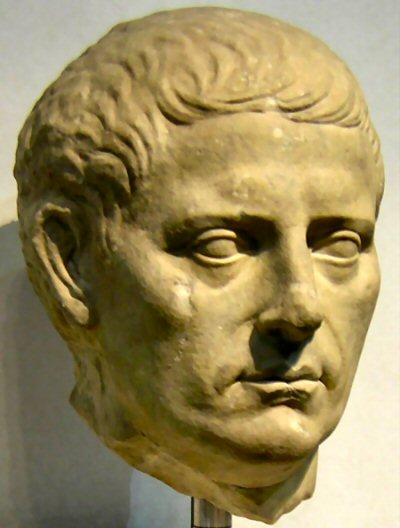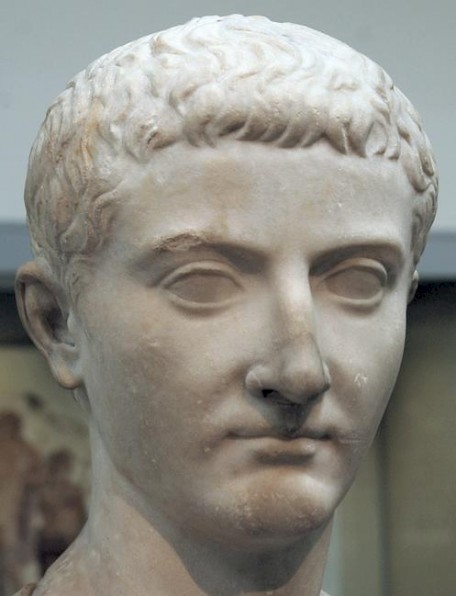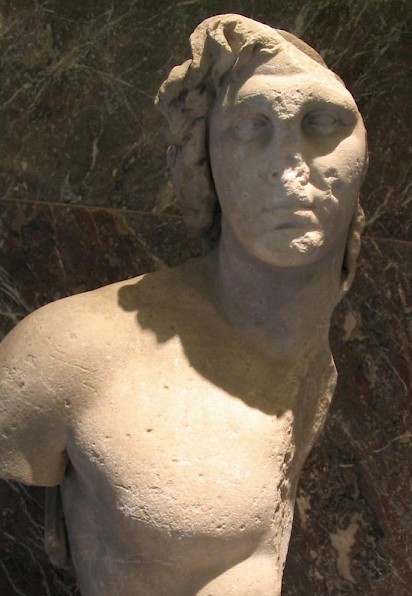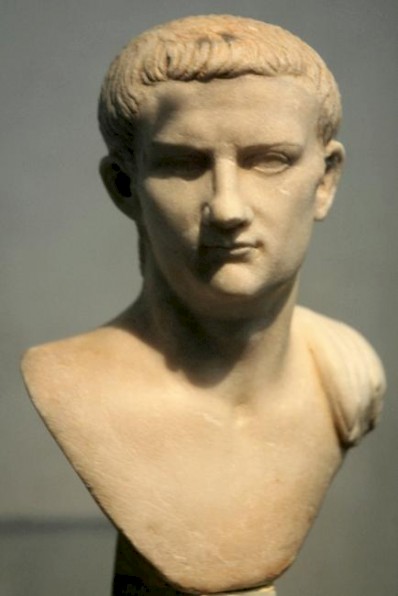Curtius Rufus
Quintus Curtius Rufus (†53 CE): Roman senator, author of an important History of Alexander the Great.

The main source for the life of Quintus Curtius Rufus is the Roman historian Tacitus:
Of the birth of Curtius Rufus, whom some affirm to have been the son of a gladiator, I would not publish a falsehood, while I shrink from telling the truth. On reaching manhood he attached himself to a quaestor to whom Africa had been allotted, and was walking alone at midday in some unfrequented arcade in the town of Adrumetum, when he saw a female figure of more than human stature, and heard a voice, "Thou, Rufus, art the man who will one day come into this province as proconsul."
Raised high in hope by such a presage, he returned to Rome, where, through the lavish expenditure of his friends and his own vigorous ability, he obtained the quaestorship, and, subsequently, in competition with well-born candidates, the praetorship, by the vote of the emperor Tiberius, who threw a veil over the discredit of his origin, saying, "Curtius Rufus seems to me to be his own ancestor."
Afterwards, throughout a long old age of surly sycophancy to those above him, of arrogance to those beneath him, and of moroseness among his equals, he gained the high office of the consulship, triumphal distinctions, and, at last, the province of Africa. There he died, and so fulfilled the presage of his destiny.note

There is probably a bit more to be said about this. In the first place, Curtius Rufus was consul in 43 and died in 53. This means that the final stages of his career were during the reign of Claudius (41-54); but he had reached the praetorship under Tiberius (14-37). Now, Roman careers were fairly typical (cursus honorum) and between a praetorship and consulship never expired a long period. Curtius Rufus' career, however, shows a gap.
This can easily be explained. As son of a non-senator (although "gladiator" smells like insult), he must have made his career in the army, and was able to advance because he was protected by Seianus, Tiberius' praetorian prefect. When Seianus fell from power in 31, Curtius Rufus' career came to an end, to resume only during the reign of Claudius.
During the decade 31-41, which was marked by the tyrannical final years of Tiberius and the despotism of his successor Caligula (37-41), Curtius Rufus seems to have composed the History of Alexander the Great.

Disregarding some minor authors, Quintus Curtius Rufus is the only Roman writer whose history of Alexander the Great has survived. Originally, the History of Alexander consisted of ten books, and although the work was very popular in the Middle Ages (it is known from more than a hundred manuscripts), the first two books are now lost. They contained the events between the accession of Alexander and the death of the Persian commander Memnon of Rhodes. Our manuscripts start when the Macedonian army marched through Phrygia, in the spring of 333; the last book ends with the burial of Alexander's body in a golden sarcophagus, which was later brought to Egypt (321).
Taken as a whole, it is a very fascinating book, although it contains errors. Both can be explained from the fact that it has the History of Alexander of Cleitarchus (a contemporary of Alexander) as its source. The author of this book had written a fine history that focused on Alexander's presumed psychological development from a brilliant young conqueror to a paranoid despot.

This psychological dimension makes Curtius' History of Alexander good reading and the Roman readers must have seen through it: of course, the real subject was not Alexander, but the tyranny of Tiberius and Caligula. (It can be shown that Curtius Rufus' description of the trial of Philotas is based on an incident during the reign of Tiberius.)
Cleitarchus, however, had based himself on the stories told by soldiers, who sometimes exaggerated or did not fully understand what was happening. Errors were inevitable, and slipped, through Cleitarchus, to the History of Curtius Rufus. Yet, he is not an uncritical imitator: he has read other sources (Ptolemy, Aristobulus) and sometimes corrects his model. Curtius may not be a great historian, but he certainly tried to be critical, and offers many interesting stories that we do not find in our best source, Arrian of Nicomedia, to which he is a valuable and necessary addition.